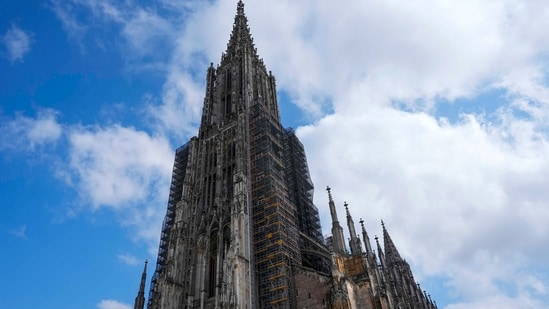The Korean chief executive of Jeju Air, Kim E-bae, could not have been more direct. After the crash of one of the airline’s planes he went straight to the microphone, bowed deeply and said, “Regardless of the cause, as CEO, I feel profound responsibility for this incident.” He offered his “deepest condolences and apologies to the families of the passengers who lost their lives”.
The statement seemed unusual. Last week, another plane crash, this time in Kazakhstan, was acknowledged by a man similarly “responsible”, Russia’s Vladimir Putin. In a contorted message to his fellow leader in Azerbaijan, he said how sorry he was about “a tragic incident that occurred in Russian airspace”. He expressed condolences but no responsibility for what has been widely accepted as a Russian missile attack, however unintended. Putin appeared not sorry, but devious.
Public figures hate apologising. Ministers tend to apologise for public scandals long after the event, safe in the knowledge that no blame could possibly attach to them. Thus in the case of Rishi Sunak for infected blood, David Cameron for Hillsborough and Keir Starmer for Grenfell. Tony Blair never apologised for the war in Iraq, only for some failures in planning the war and its aftermath. Liz Truss only apologised for going “too far and too fast” with her disastrous budget. The archbishop of Canterbury apologised for the Church of England’s most recent sex scandal, except that the apology was really for the hurt caused to victims by his farewell speech in the House of Lords.
I remember once seeing Reform’s Nigel Farage make a fool of himself. He was addressing a packed audience of students at the London School of Economics about Brexit and launched a withering attack on the incompetence of Greece, then the EU’s rotating chair. What kind of organisation, he asked, could possibly put pathetic Greece at its head? He boisterously dealt with hostile questions until a student who claimed to run the Greek students’ society stood up. She explained quietly why she was deeply offended by what he had said. She was cheered to the roof.
Farage stepped forward, looked at his audience and said he was deeply sorry for his remarks. He apologised, promised never to repeat them and would seek somehow to make amends. He clearly meant it. There was total silence, and then a burst of applause. I had never heard a politician say anything like it.
I know the accused in court is told not to apologise for fear of it sounding like a confession of guilt. Likewise, those in public office feel nervous about taking responsibility for the actions of those under them. But lines of accountability get confused. Democracy requires blame, but nowhere states where it should lie. Why was it that Lord Carrington felt obliged to resign as foreign secretary over Argentina’s invasion of the Falklands?
If there is one activity that obsesses modern British government, it is holding public inquiries into its past mistakes. There are currently 18 in progress. Those into the Post Office, the Grenfell fire and the Covid-19 lockdown seem set to outrun The Phantom of the Opera, all costing millions in lawyers’ fees that could surely be better spent on the victims. They serve little purpose except to kick the political can down the road and avoid having to say sorry.
This is stupid. The message of the Korean airline – and of Farage – is that people not only need apologies, they are likely to respect them. There is nothing nobler than sincere regret. Mistakes in public life are sufficiently common to merit apologies. Offering them might make the public less cynical towards those in power.
Simon Jenkins is a Guardian columnist
Do you have an opinion on the issues raised in this article? If you would like to submit a response of up to 300 words by email to be considered for publication in our letters section, please
Read More

